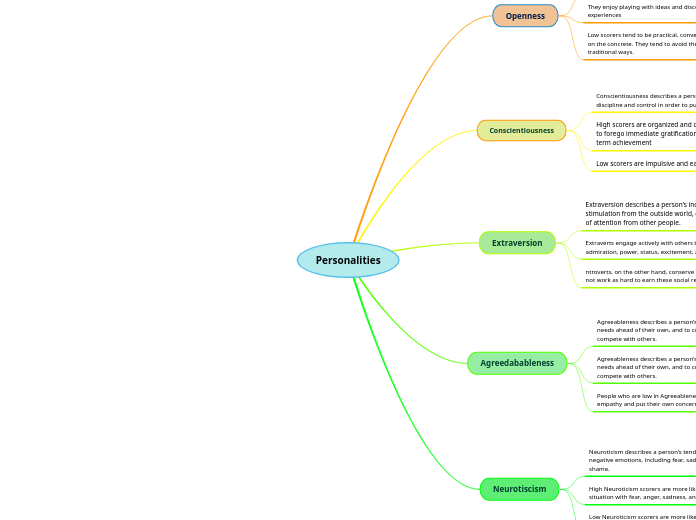por Jair Vazquez hace 3 años
123
Personalities
Conscientiousness involves an individual's capacity for self-discipline and long-term goal pursuit, with high scorers being organized and determined, while low scorers are impulsive.

por Jair Vazquez hace 3 años
123

Ver más